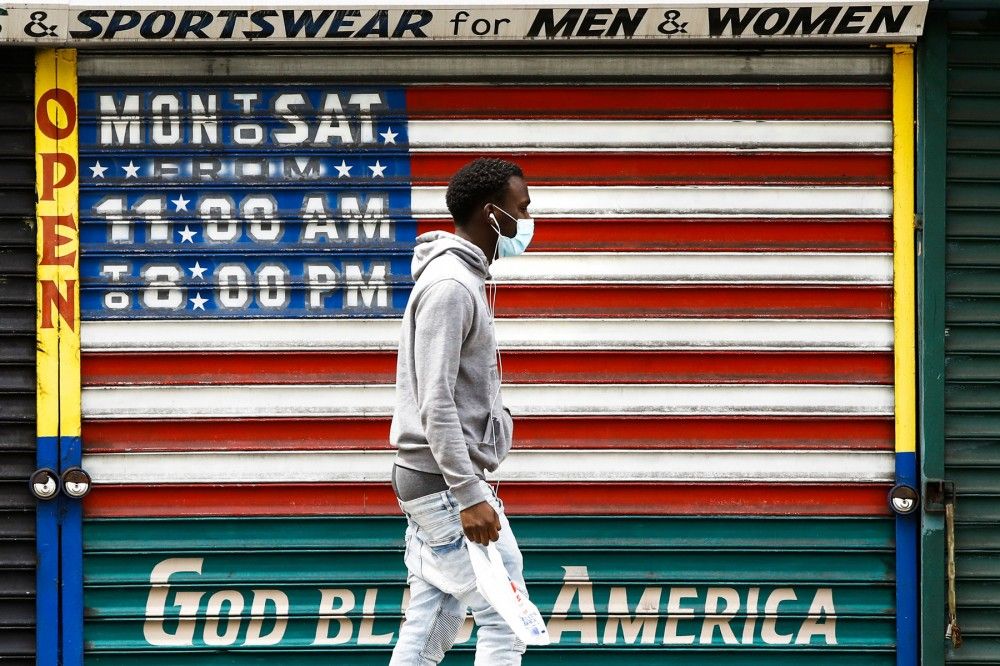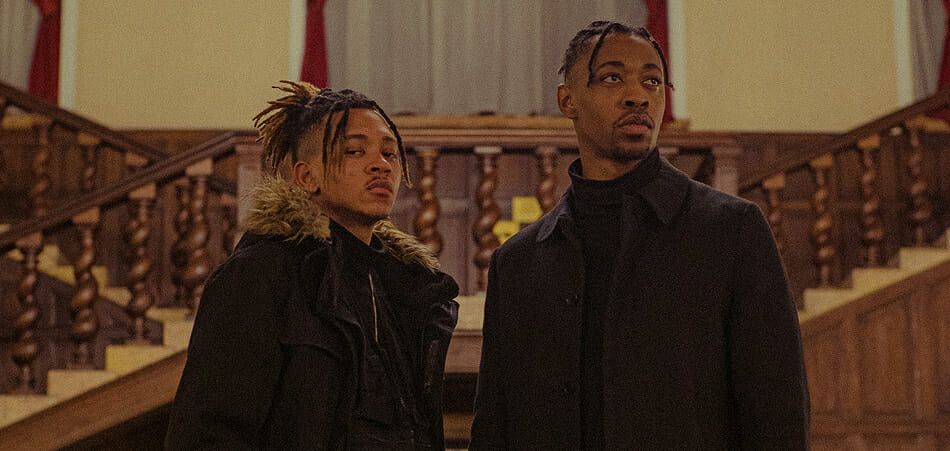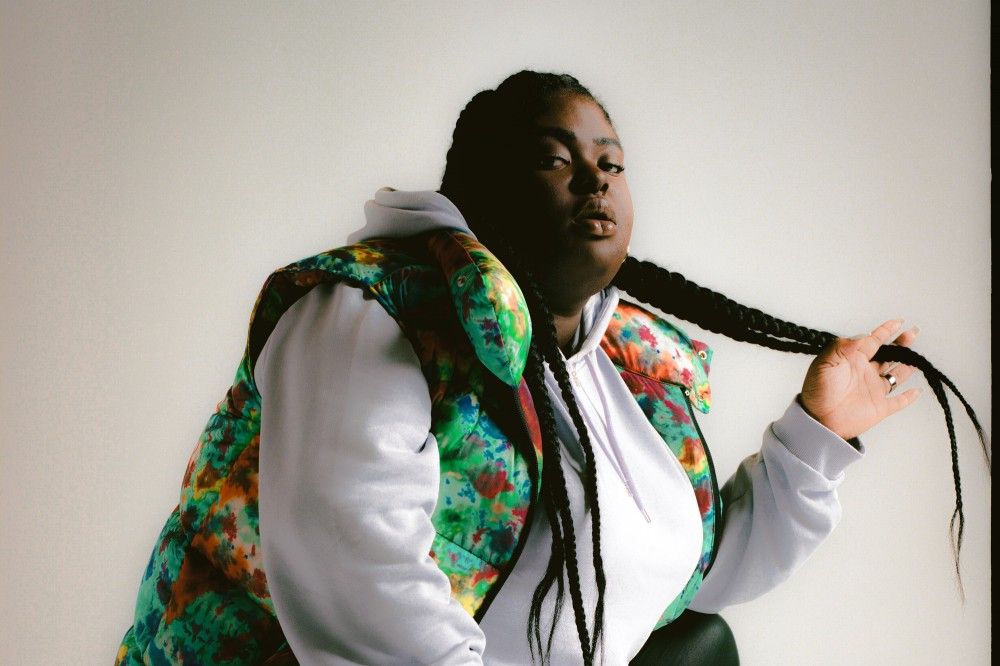
America Is Living Paycheck to Paycheck — on Purpose
The Trump administration blew $349 billion in small-business pandemic aid in four weeks, less time than it took for me to grow out my quarantine beard. That is nothing to be proud of, but President Trump still took his victory lap on Tuesday, boasting about breaking speed records for loans like it was an Olympic sport. Unmentioned were the carelessly written rules that allowed at least $500 million to go to Fortune 500 companies, major hotel chains, and other publicly held corporations. Some will return the tens or hundreds of millions, some won’t. In the midst of a plague and the worst economic collapse in at least a decade, the White House has let in the robber barons to use the Treasury like an ATM. The Paycheck Protection Program should be the latest major Trump corruption scandal — but we aren’t yet treating it as such.
It has been only four weeks since signed the Small Business Administration’s PPP into law, and now he is getting $320 billion more to dole out to businesses that presumably are not the Los Angeles Lakers. That total will include at least $60 billion reserved, he said on Tuesday, “for community banking institutions, including those that serve minority and distressed communities…that’s African American communities, Hispanic American communities, it’s Asian American communities.”
The $60 billion has the veneer of generosity, giving the appearance that Trump and company actually recognize and care about fixing one of the fundamental errors of the first round of funding. It also would be generous to call it an “error,” since anywhere from 75% to 95% of businesses owned by Americans who aren’t white, which make up nearly a third of the U.S. total, had virtually no chance of receiving low-interest PPP loans designed to help them pay workers during the pandemic.
Much like the flaw that allowed big business to capitalize on the PPP, this one was inherent in the program. An April 6th report published by the nonprofit Center for Responsible Lending stated that while communities of color were suffering the worst job losses from the COVID-19 crisis, the PPP’s initial incarnation would “provide no benefit at all to the vast majority of businesses owned by people of color.” Small business owners, overall, would have been less likely (before the loan program was announced, the report indicated) to finance their debt or have existing commercial lender relationships. Since the Small Business Administration only made the loans accessible through banks and its lenders, if one were a business owner without the prescience to have the right connections and credit lines before the pandemic, well, good luck staying afloat.
And the $60 billion won’t be enough, at least according to the CRL’s Director of Federal Advocacy and Senior Counsel, Ashley Harrington. She told Rolling Stone that the Small Business Administration needs a set-aside of $10 billion of new PPP funds for Community Development Financial Institutions (CDFIs) and Minority Depository Institutions (MDIs). It’s the only way that black, Latino, Asian, and other small business owners of color can have an equal chance to receive pandemic relief as wealthier bank clients. “CDFIs and MDIs have strong track records of lending to underserved businesses,” Harrington says. “However, without a specific allocation, the expanded PPP funding will run out before CDFIs and MDIs can access it, thwarting Congressional intent and the overall goals of the program.”
It is questionable, though, what the PPP’s actual goals truly are beyond alleting, month to month, a sudden burden for which no small business could have likely been insured or prepared. Under its current structure, that is all it seems capable of accomplishing. They are merely the ventilators keeping a sick private sector alive, hardly breathing life back into it. It may be tough to discern amidst the self-congratulation and Trump’s latest threats to pull aid from municipalities which refuse to back his immigration agenda — as he did after his Tuesday victory lap when he threatened “sanctuary cities,” this time during a pandemic. But the real goals of this PPP appear murkier until we contextualize them with the push to “re-open” state economies, which the president has incessantly urged over the last several weeks against the advice of medical officials. Despite the United States surpassing the one million mark of known coronavirus cases on Tuesday, Trump said aloud that same afternoon that “our experts believe that the worst days of the pandemic are behind us,” which is a lie.
So say that the $60 billion for community banks in underserved areas won’t close the gap widened by the first round of funding. And states like Georgia and Tennessee and others keep hastily opening up — despite scientists saying openly that we don’t even yet know how the coronavirus is killing us — let alone how to stop it. We have leaders like Iowa governor Kim Reynolds, a Republican, telling her residents that it will be considered “a voluntary quit” if employees refuse to return to work when businesses open — likely as soon as May 1st — despite the lack of clear evidence that it is safe to do so. When those people are terminated, per The Hill, they’ll lose their unemployment benefits. This isn’t theoretical; the governor said this openly.
This doesn’t just hurt employees, but employers. If they are mandated by governors to re-open their businesses and the pandemic has a resurgence, who is to say that that the government will save them again? Will there be any federal bailouts, even one as sorry as this PPP? Or is this about federal and state governments, run by , seeking to avoid the cost of their paid leave and insurance during a pandemic? The better to dole out government largesse to their corporate donors, perhaps? It might seem conspiratorial if it weren’t already happening in plain sight. (If this doesn’t push Joe Biden to understand why employer-based health insurance is unsustainable, I don’t know what will.)
It is easier to dismiss Trumpian policy as the mere recklessness or incompetence of people who do not know what they are doing. However, discrimination is so often built into their work, making it more difficult to summarily dismiss. It becomes categorically impossible when he and his fellow Republicans are rushing the nation into a nationwide recovery from a pandemic that is still raging, and that they are still exploiting to exacerbate racial and economic inequalities that existed before the infection began to spread. Moreover, this appears to be part of a previous Republican modus operandi, since the party previously excelled at maximizing their public-sector power and private-sector profits while minimizing any responsibility they or their friends carried for the disasters they wrought.
Republicans aren’t seeking to get America back to normal. They’re setting loose a plague that is disproportionately killing black and brown people, disproportionately killing their businesses and their jobs, and putting the burden of the social safety net onto working-class people of all colors so that they can bleed government of its power and profit during the greatest medical crisis this country has faced during any of our lifetimes. We are bleeding to death, and here come the leeches.



